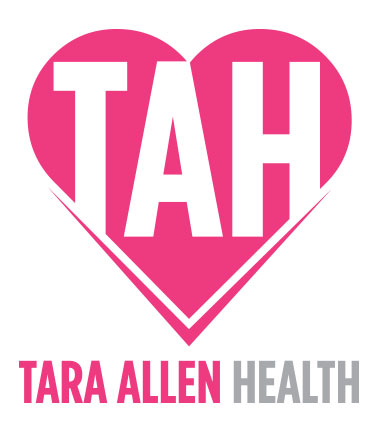I used to hide my sharp can lids inside a fully closed box before putting them in the trash.
I’d finish a can of beans, take the razor-sharp top, tuck it into a cardboard box like I was putting it down for a nap, and then toss the whole thing away so no one would slice their hand pushing down the trash. I once knew someone who needed stitches from that exact thing, so in my mind, this system was genius.
Safe. Smart. Responsible. Future-proof.
Then I started noticing what other people were doing.
They’d make this whole production out of it. Wrapping the lid in what felt like an entire roll of paper towels, taping it up like a crime scene, and then throwing it away. And instantly I thought, “Oh… so my way must be wrong. I’m not being careful enough. I’m doing it weird.”
That’s been a theme in my life. I’d have a smart instinct. A system. A method. And the second someone else did it differently, I’d assume they were right and I was… extra. Or careless. Or not doing enough.
I did this with my list-making, my early adoption of wearing mouthtape to bed, strength training in the 90s when it wasn't "cool" for women to do, my parenting instincts that go against traditional advice, business decisions like always publishing my prices on my website ... you name it! Because I'm stubborn, I often stayed the course, but it would leave me feeling like an outcast, and not in a good way.
Fast-forward a decade or two.
My instincts were right a ridiculous majority of the time.
So right that now I often watch people doing things the exact way I’ve done them for years — the way I once got embarrassed by — and I’m like, “Oh cool, welcome."
And yes, there is an upside to assuming you’re wrong all the time ... you learn a lot. You observe everything. You become a student of humans, systems, health, and patterns.
But the downside is you shrink. You self-edit. You mute your brilliance because you assume someone else must “know better.”
And that’s really what this whole can-lid thing exposed for me (and all the other stories just like it): this isn’t really about trash… it’s about trust.
This is the moment you start your next chapter, not by performing or perfecting, but by coming back to the version of you who actually trusts herself. Or maybe meeting her for the first time.
The version who knows what she needs.
The version who doesn’t wait for someone else to validate her decisions.
The version who doesn’t pause her entire life to compare her instincts to a stranger’s opinion.
So here’s the assignment I’m giving you, whether you like it or not ...
For the next month, pretend you’re 30% more unstoppable than you are right now. Yup. PRETEND.
Thirty percent more convinced of your own power. Thirty percent more “why not me too?” Thirty percent more likely to choose action over spiraling.
What’s wild is that when you show up with that extra 30%, your brain eventually rewires it into your identity.
By the time you “catch up,” the fabric of who you are is already built to hold this new version and the goals that come with her.
Your actions align. Your nervous system recalibrates. Your biology rises to meet your beliefs.
Eventually, this unstoppable version of you becomes your new baseline — your floor, not some far-off ceiling. This is how you grow into the woman you keep saying you want to be.
Because, look, nobody who has what you want was “ready” when she started. She just moved before her fear could talk her out of it. And then when it crept in, she kept going.
“Being ready” is a myth we use to keep ourselves safe.
We say, “It’s not the right time.”
“Maybe when life is calmer.”
“I need to do more research.”
But readiness isn’t something you wait for. It’s something you create ... with action.
The women who take TRANSFORM and get results are not better than you. They’re not magically less busy or genetically more gifted.
In fact, some of them had every reason not to do it or to give up!
I had a few women from Puerto Rico who kept showing up after a hurricane took out their power for weeks — using spotty Wi-Fi, sitting in the dark — because they decided they were done putting off their goals for “perfect conditions.”
They didn’t wait to feel ready. They were willing ... to try, move through the messy middle, unlearn diet culture and relearn a brand new way that 99.99% of people haven't tried yet.
Starting before you’re ready speeds up the timeline. It shifts your whole identity and proves the next-level version of you is already here.
Try this right now:
Picture your future self one year from today. Who is she? What does she feel like? What does she look like? What does an average Tuesday look like for her? What has she accomplished with hard work this past year?
Now imagine she -- in all her magical goodness -- looks directly at you and says: “I’m not here to brag to you. I’m here because I belong here. Now match my frequency.”
(Goosebumps, am I right???)
Becoming her means mastering your biology and your psychology. Your metabolism, hormones, gut, nervous system, habits, thoughts, identity — the whole thing.
That’s what we’re doing next.
11/26. Tomorrow. Mark your calendar.
TRANSFORM: Body + Mind opens tomorrow for a special Black Friday deal.
If you’re on the waitlist, you’ll get a $50 discount code the moment doors open.
Today is the last day to join the waitlist and get that code tomorrow.
So yes — this started with a story and about sharp can lids. But really, it’s about self-trust. About your next evolution. About becoming just 30% more unstoppable and letting the rest of you rise to meet it.
Where have YOU been doubting yourself?
Then tomorrow… you move.
It’s time. For your metabolism. For your energy. For your confidence. For the people who look up to you.
For you.
Talk tomorrow. Big day!!
XO,
Tara
P.S. I get this question every round: “Do you offer a discount if I want to do TRANSFORM again?” Every round is updated, the questions are sharper, and the group momentum is electric… so I don’t blame you for wanting back in. Yes — if you’re a repeat TRANSFORM client and want a second (or third) run, email me and I’ll send you a secret 50% off code. Tara@TaraAllenHealth.com
P.P.S. In case you missed it:
Last minute Thanksgiving apps + sides recipes (free)
2025 Holiday Gift Guide (free)
Smart Cookie: 84 GF, healthified holiday desserts
This post about my diagnosis betrayal


